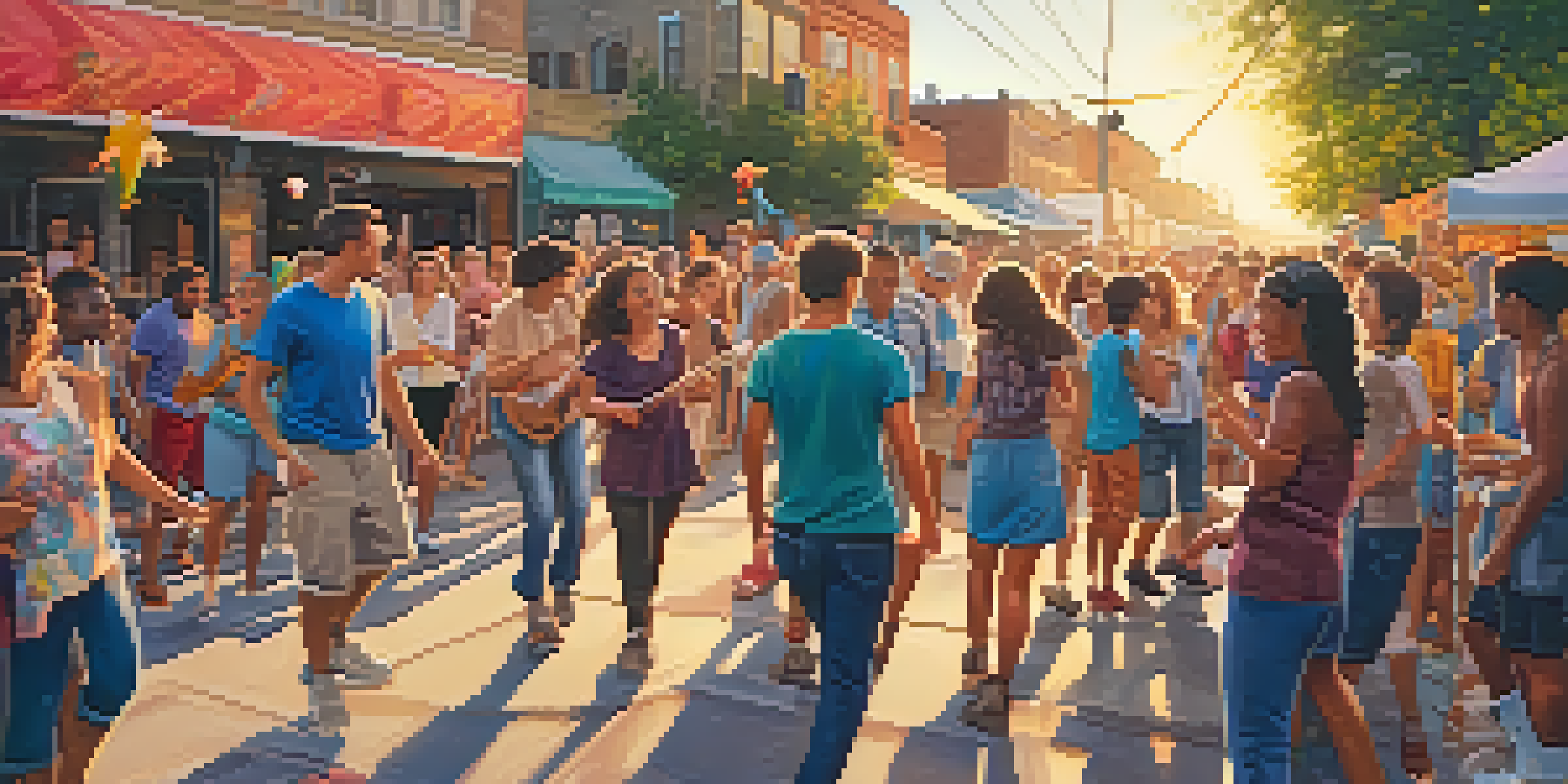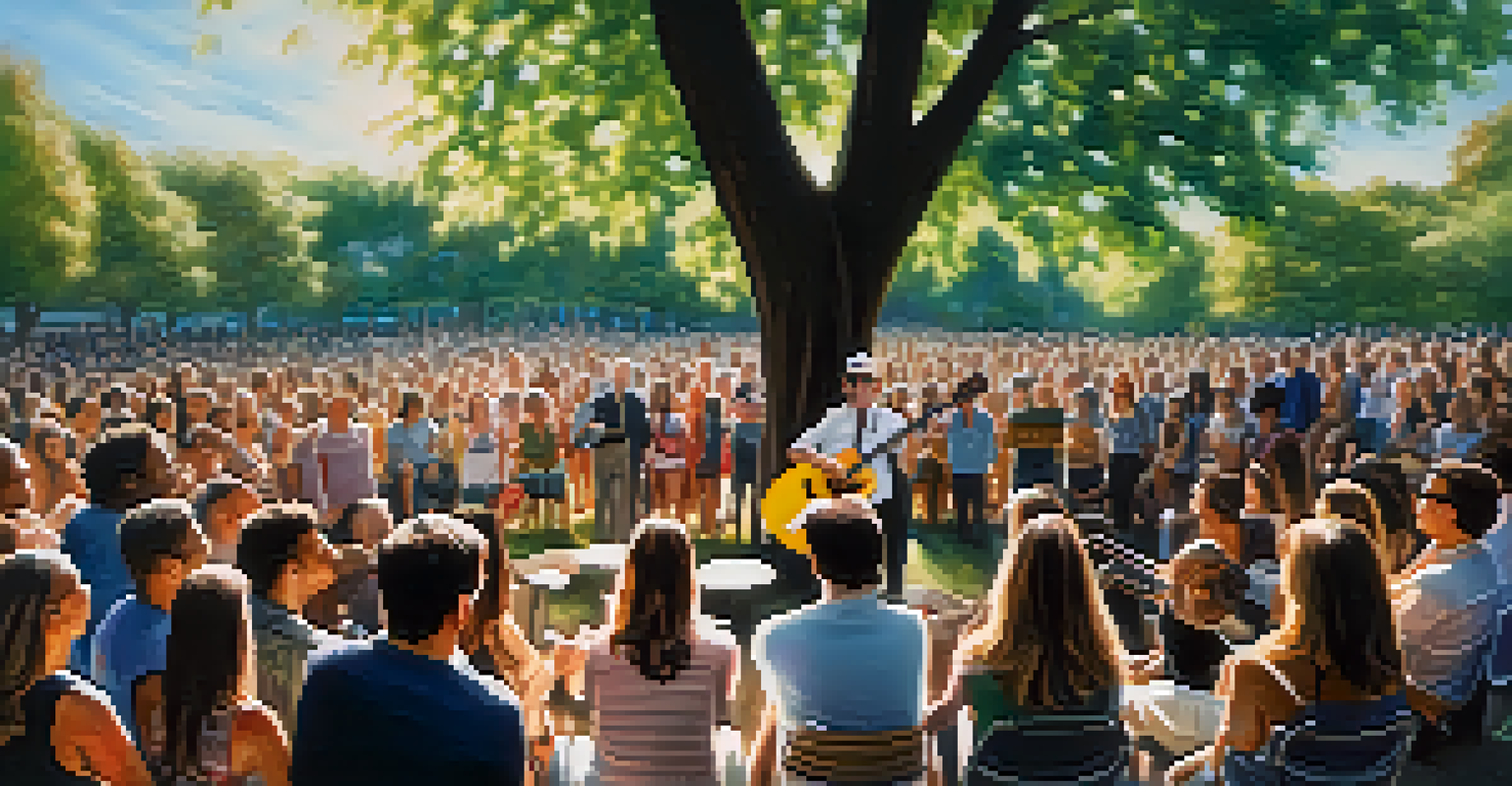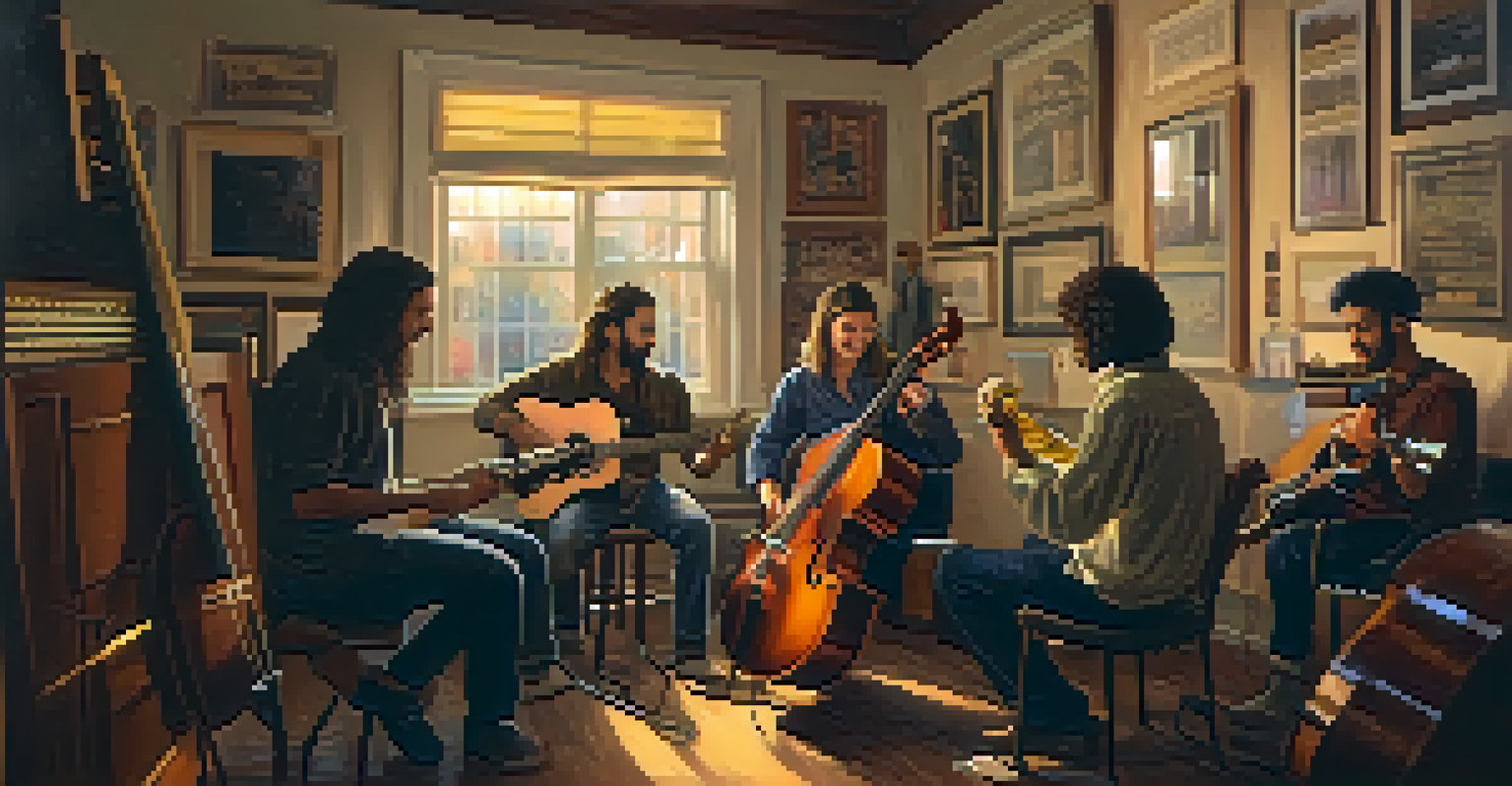Music as a Unifying Force in Times of Social Crisis and Change

The Power of Music in Uniting Communities
Music has an incredible ability to bring people together, especially during times of social unrest. It transcends language barriers and cultural differences, creating a shared experience that fosters unity. For instance, during protests, anthems emerge that resonate with collective feelings of hope and resistance.
Music is the universal language of mankind.
When communities face crises, music often serves as a rallying point, allowing individuals to express their emotions and solidarity. Think of the iconic 'We Shall Overcome' during the civil rights movement; it became more than just a song—it was a symbol of a collective struggle for justice. These shared melodies can inspire courage and resilience.
Moreover, music can forge connections across generations, connecting younger and older individuals through common themes of love, struggle, and perseverance. Whether it’s a local band playing at a community event or a global movement like Live Aid, music has the power to unify and strengthen community bonds.
Historical Examples of Music as a Catalyst for Change
Throughout history, music has played a pivotal role during times of social change. From the anti-war songs of the 1960s, like Bob Dylan’s 'Blowin' in the Wind', to the powerful anthems of the South African struggle against apartheid, music has been a voice for the voiceless. These songs often encapsulate the emotions and aspirations of those yearning for change.

During the fall of the Berlin Wall, music became a symbol of freedom and unity. Concerts and performances in the streets represented a collective desire for peace and reconciliation. The power of these events was amplified by the music, which served to inspire and energize the crowd.
Music Unites During Crises
Music has the remarkable ability to bring communities together during challenging times, fostering unity and shared experiences.
More recently, movements like Black Lives Matter have utilized music as a means of protest and expression. Songs like Kendrick Lamar's 'Alright' have become anthems of hope and resilience, demonstrating how music can amplify messages of social justice and solidarity.
Music’s Role in Healing and Resilience
In addition to uniting people, music has a profound impact on individual and collective healing. During times of crisis, listening to or creating music can be therapeutic, providing an emotional outlet for those affected. It allows individuals to process their feelings and find solace amidst chaos.
Where words fail, music speaks.
For example, after natural disasters, community gatherings often feature music as a way to uplift spirits and foster resilience. These musical moments can remind individuals that they are not alone in their struggles, reinforcing the idea that together, they can overcome adversity.
Furthermore, music therapy has gained recognition for its effectiveness in helping individuals cope with trauma. By engaging with music, whether through singing, songwriting, or playing instruments, people can articulate their experiences and emotions in a safe and supportive environment.
The Influence of Music on Social Movements
Music has always played a crucial role in social movements, often acting as a rallying cry for change. Whether it’s protest songs or empowering anthems, music can galvanize people and motivate them to take action. It creates a sense of belonging and purpose, which is vital in mobilizing communities.
Consider the impact of songs like 'Fight the Power' by Public Enemy. It not only addresses systemic injustice but also encourages listeners to stand up for their rights. This kind of music fosters a collective identity and inspires activism, making it an essential tool for social movements.
Historical Impact on Social Change
Throughout history, music has served as a powerful catalyst for social movements, amplifying voices and inspiring collective action.
Moreover, social media has transformed how music reaches audiences, allowing grassroots movements to share their messages widely. Platforms like YouTube and TikTok have given rise to viral songs that can quickly spread awareness and rally support for causes, amplifying the voices of those fighting for change.
Collaborative Music Projects in Times of Crisis
Collaborative music projects often emerge during social crises, showcasing the power of unity through creativity. These initiatives gather diverse artists and musicians, encouraging them to come together to create something meaningful. It highlights the idea that collaboration can lead to impactful change.
One notable example is the 'Band Aid' project in the 1980s, which brought together various artists to record 'Do They Know It’s Christmas?' to raise funds for famine relief in Ethiopia. This collaboration not only raised awareness but also showed how music can mobilize resources for urgent causes.
In today’s digital age, we see similar initiatives where artists from around the world collaborate virtually to produce songs that address social issues. These projects not only entertain but also educate and inspire listeners to engage with pressing societal problems.
The Evolution of Music in the Digital Age
The digital age has transformed how music is created, shared, and experienced, particularly in times of social change. Streaming platforms and social media have made it easier for artists to reach global audiences, allowing their messages to resonate far and wide. This democratization of music has empowered diverse voices to participate in conversations around social issues.
Furthermore, the rise of independent music production has led to the emergence of grassroots movements that often address local concerns. Artists can now record and distribute their music without the traditional gatekeepers, leading to a richer tapestry of voices and stories that reflect the complexities of the modern world.
Digital Age Transforms Music's Role
The rise of digital platforms has democratized music, enabling diverse voices to engage in social issues and create collaborative projects.
This evolution also means that music from different cultures can influence and inspire one another, fostering a greater sense of unity. Global collaborations, like those seen in genres such as reggaeton and Afrobeat, highlight how music can bridge gaps and promote understanding among diverse communities.
Looking Ahead: Music’s Continuous Role in Society
As we move forward, the role of music in society will continue to evolve, but its core function as a unifying force will remain. In times of crisis, music will always be a source of comfort, inspiration, and resistance. It's essential for communities to recognize and harness this power to foster understanding and solidarity.
Future generations will likely find new ways to express their struggles and triumphs through music, reflecting the ever-changing landscape of society. Whether through concerts, virtual events, or grassroots movements, the potential for music to inspire change is boundless.

Ultimately, music serves as a reminder that in our darkest moments, we can find light through shared experiences and collective voices. By embracing this unifying force, we can continue to advocate for a better world and promote healing in the face of adversity.